
Are Neutrality, Observation and Discrimination Enough?
Investigators are the umpires that establish what truth we adopt and implement. Investigators seek balanceBalance: 1. The power or ability to maintain equilibrium under adverse circumsta… (click the word for the full definition) between masculineMasculine: 1. on a Gender Identity level, it reflects operating as a male 2. bey… (click the word for the full definition) and feminineFeminine: 1. on a Gender Identity level it refers to being female 2. on levels b… (click the word for the full definition), the past and the future (focusing on the present) and between what is incomplete versus what is whole. This is how they establish reflections of truth and use wisdomWisdom: 1. the quality of being wise 2. power of discriminating appropriately in… (click the word for the full definition) and understanding to create continuity. It is not the contentContent: 1. the outer appearance, item or thought that defines the set of possib… (click the word for the full definition) that interests them but the relationship of any truth to any other truth.
– From The Wise Old Sage Commentaries
As Investigators, we seek to know how the world works. This makes us willing to explore topics in elaborate detail. It is not enough that we understand the topic, we must be able to create new wisdom from our understanding of all the information. Therefore, being a neutral observer is not enough. While we Investigators have a reputation for our strong analytical thinking skills, it is our emotional intelligence that allows us to grow in our wisdom. Until we balance our intellect with our intuitionIntuition: 1. a state of perception of the Self where our creative nature is hon… (click the word for the full definition), it is hard to make the spontaneous leaps into new understanding so we can solve the questions that we have about the universe.
As Investigators, we also need to build our knowing from the inside out by embracing all our experiential modalities: sensations, feelings, emotions and thoughts. It is only when we have an internal experienceExperience: 1. the apprehension and transformation of reality, circumstances, or… (click the word for the full definition) that combines the modalities that we can see our whole truth. Any distortions where we overdo or underdo a modality ends up requiring us to completely detach from that modality to maintain our objectivity.
Ultimately, these compromises in our ability to experience our truth reduce our ability to make accurate observations in the world. What we desire more than any other creative expression is to be able to formulate and understand how things work in the world so we can expand our knowledge of how to best manage it. What Investigators realize is that external truth can only be determined by first clearing out any distortions in our modalities of perception. Internal truth empowers external observation, which allows us to determine the appropriateness of various solutions to produce a result.
Investigators are assimilators, for individuals and for groups, constantly organizing and validating experiences, summarizing these as thoughts. They are an intellectualIntellectual: 1. a dualistic framework where our positions reflect a partial vie... (click the word for the full definition), harmonizing, solutions bridge between these two groups.
Larry Byram Tweet
Investigators use detachment and discrimination to clarify what we must do to make the world a better place. This assimilative energy is neutrally balanced and Investigators do not jump to immediate conclusions. Instead, they like to cultivate wisdom by creating elaborate structures of knowledge. They build out their knowing by organizing it, so it is easily accessible. They feel joyJoy: 1. a state of well-being and wholeness that arises from a balanced apprecia… (click the word for the full definition) when they can share that wisdom on demand with people who need it. They are always learning, even if it is not a structured process.
This is because they have a pre-established framework for organizing what they know, they are constantly discovering things that they can add to, then locating and placing them in exactly the right box in their library. They use information to experiment on the usefulness of it. Knowledge without usefulness bugs them. They are always trying to find a way to connect the dots so some problem can be solved. They are never satisfied with what they know so they are in a state of constant learning.
They love to invent solutions when they see how information and experience support moving forward. Unlike Inventors, Investigators like to stick to more traditional topics or at least the topics which interest them the most. They have a more common-sense way of starting at the bottom and then step-by-step getting to where they need to go. The more they remain generalists, the truer they remain to their investigative roots. Today with the deluge of information there is a huge pressure to specialize and become experts in their fields. They feel the pressure of society’s needs and seek securitySecurity: 1. maintaining a state of well being through time 2. a driving force o… (click the word for the full definition) by focusing on a topic and going extremely deep. This allows them to distinguish their knowledge base.
The problem is that in becoming part of the traditional knowledge structure, they do not stand out. What they enjoy most is seeing the wholeness of the possibility and being able to explain it to others. In their interest in pursuing how things fit together, they legitimatize others’ perceptions of their own truth. Investigators possess a linear lucidity when they are on the hunt for answers. They become very one-pointed and focused in trying to understand what is not known. They think of themselves as defining new ways of thinking on the frontier. They possess a technical precision, and they love following the rules of science if it will allow them to be seen by their peers.
Investigators are traditional generalists but can get locked into specialist positions that do not work for them
Larry Byram Tweet
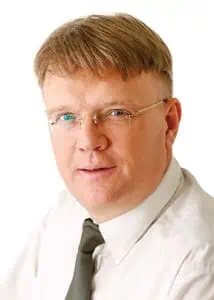
Investigator
Implementor
Visionary
Distant-Dynamic
5-3-6
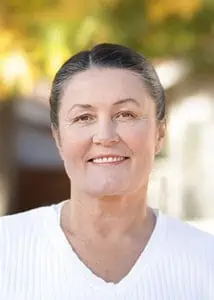
Investigator
Orchestrator
Storyteller
Dynamic
5-1-7
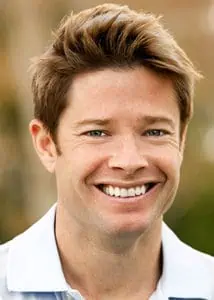
Investigator
Compassionate
Storyteller
Distant Disarming
5-2-7

Investigator
Visionary
Storyteller
Disnamic
5-6-7
What is unrecognized is that they possess a huge capacity to define, and name thoughtThought: 1. electromagnetic fields that are born in the process of thinking 2. a… (click the word for the full definition) forms which they do when they make new discoveries. These thought forms can become their legacy and contribution today. When we have these breakthroughs, there is the possibility that we become fixated on our part in bringing them to the attentionAttention: 1. The ability to focus ourselves in a way where we are Present with … (click the word for the full definition) of the world. This can lead to issues with self-importance and idealized unityUnity: 1. the state of being one, or united, oneness 2. something complete in it… (click the word for the full definition) that reveal our fixation nature. When we let go of possessing these thoughts or trying to take credit for them, we can start to see how they reveal the underlying wisdom present in the universe. This is the real experience that investigators seek.
They want to be able to navigate freely these rivers of thought and connect things that previously are unknown. This reveals that the acquisition of knowledge that seems to be our main intention is just a placeholder that describes our real-world motivation. We ground ourselves in our ideal that we have power when we know things and that everything that can be known should be known. This is a very rigid masculine perspective when in fact wisdom is more spacious and feminine. What Investigators discover is that concrete thoughts do not inspire breakthroughs. It is only abstract intuitive thinking or direct knowledge that manifests as scientific breakthroughs. We think in more unified ways when we combine masculine and feminine ways of discovery.
Investigator Contribution Operates Through Its Structured Wisdom
A fully actualized Investigator conveys and reflects a consensus understanding of how the world works. They are listeners and assemble structures of understanding, and when called upon provide synthetic wisdom-provoking suggestions about how to discover your own truth. While investigators are repositories for those who have not yet learned how to validate their own truth, they are co-creative investigators for all those who do know how to be with their thoughts. They can espouse three levels of thinking: associative, constructive, and abstract or creative, or three types of intelligence; Mental Body, Secondary, and Primary. They can even break these down into 9 dimensions of thought, but their motto is “Three minds unite.” They seek to liberate the light.
The qualities of an actual Investigator are neutrality without bias, curiosity, and both deductive and inductive thinking. Investigators are committed to matching and mirroring their inner and outer experiences to make sure their truth is complete. An investigator can work equally well with all expressions or creative types equally and co-creatively. When they subjectify themselves or others concerning the pursuit of truth, they become lost and unable to consciously function. These individuals fall into role-playing expertise, where they pursue cleverness, not wisdom.
Fully actualized Investigators experience common correspondences when they are working with similar thoughts. When they are doing well, they are optimistic, interested in new content, inquisitive and curious. When they are not doing well, they are caught in rushed time frames trying to satisfy others in ways that create more disappointment and stress they end up seeing seeming empty, Superficial, and resistant to new information. When they are overwhelmed, they can shame others or subjectify them. What they love the most is conversations that explore the quality of ideas so they can coordinate them and make them accessible to everyone.
An Investigator Example
My friend Darrell is a fabulous example of being in a state of constant learning. His curiosity and joy at seeing how things work knows no bounds. As an Investigator, Implementer, Storyteller, he uses his analytical skills with his emotions to create thought-provoking sculptures and performance art pieces that connect people to their internal structures of perception. As a graduate of the Higher AlignmentAlignment: 1. A condition of close cooperation or shared intention where compati… (click the word for the full definition) program, he can see and understand who people are briefly. This has led him to be a guide to others in growing their own creative powers. He loves having multi-hour conversations with people he meets on the street. For a while, he developed his authentic life expressionAuthentic Life Expression [Aka Authentic Life Work] 1. A distinct creative contr… (click the word for the full definition) identification skills by driving a taxicab. He is also a sculptor of some renown, particularly in the ‘burning man’ community.
This is only possible because he has organized all the information of Higher Alignment into categories that are immediately accessible when others encounter problems in being themselves. This allows him to listen deeply and respond first by acknowledging them for their outer concerns and then providing them with internal insights about the meaning of their gifts or concerns. Everyone enjoys having these conversations with Darrell because he is an encyclopedia of distinctions about people as well as an expert in several practical fields of endeavor. What they quickly become enamored with is his ability to explain something in a way that reveals its function or purpose. He answers their unasked questions.
Primary, Secondary & Mental Body Investigators
Primary Investigators are curious about everything. They use discrimination and detachment like a scalpel to determine the truth. They are constantly experimenting on themselves to determine their best course of action. They are driven to put the most comprehensive picture forward and make it available to everyone. Their main challenge is to focus on themselves, which they do by becoming a member of a research or discovery community. The most important thing to them is the pursuit of wisdom and understanding. They want to reveal the underpinnings of why things work so that mankind can become the co-creative power to make things right.
We see a lot of Investigator primaries doing academic research, scientific exploration, and problem-solving on issues such as global warming. They excel in non-political non-profit-driven environments where they are free to pursue their research wherever it leads them. This approach where they do not have any preconceived goals is more effective at building a scientific understanding of the field they are in. It also allows them to increasingly put together a predictable understanding of a response mechanism so it can lead to new products, therapies, or practical applications. What they trustTrust: 1. faith or confidence in the honesty, integrity, reliability, justice, e… (click the word for the full definition) is that every breakthrough leads to additional deeper opportunities that push back the frontier of our knowing.
Investigator Primaries are generalists, while Investigator Secondaries like to specialize and become experts in a particular field.
Larry Byram Tweet
Investigator primaries only specialize in today’s world because it gives them a position in their creative community where they can link their ideas with others. Investigator secondaries consider themselves experts because they have a more practical commercialization bent. They focus on linear clarity and technical precision and define themselves in terms of certain standards of performance. This means they like to use what they know to advocate a particular outcome or process. They focus their knowledge much more readily than Investigator primaries. They like to be the center of an environment applying wisdom to accomplish a certain goal. This means they are more focused on implementation.

Investigator
Visionary
Compassionate
Dynamic
5-6-2

Investigator
Inventor
Compassionate
Disarming
5-4-2
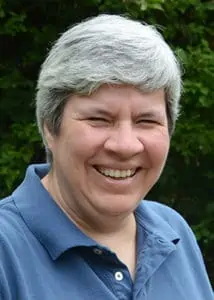
Investigator
Storyteller
Implementor
Disarming
5-7-3
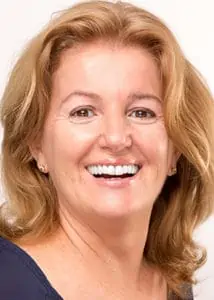
Investigator
Storyteller
Visionary
Dynamic
5-7-6
Investigator mental body individuals like to know where information is when they need it. They focus on the process of acquiring knowledge and applying deductive reasoning and concrete thinking when they interact with others. They become experts at knowing where to go to get what they need. Therefore, many of them have large libraries. These individuals focus on what is personally relevant for them to know given their job and circumstances. They are driven to learn in order not to be out of the loop when discussions occur. They want to understand why something works a particular way so they can assess its credibility and value. They are more interested in comparing different courses of action and weighing the choices so they can make a rational assessment about when and how much to invest.
The distinction between Primary, Secondary, and Mental Body Investigators has to do with the depth and purpose of their knowledge-acquisition process. Investigator primaries are the most open to new learning and will do it just for their own sake. Investigator secondaries want to take information and make it useful for some purpose, so it has commercial value. Investigator Mental Bodies are more interested in connecting themselves to the knowledge they need to know and only investigate things deeply if those things have relevance to the contributions they wish to make. This points out one of the challenges of Investigators: all of them feel compelled to share what they know with others, but they have different motivations and biases in the way they do it. When we filter out the bias, the underlying issue is how much we can count on what others are sharing with us.
If we have Investigator imprintingImprinting: 1. an acceptance mechanism used by infants and young children to ens… (click the word for the full definition), we feel compelled to act like we always know what is being discussed and why it is important. We can see this when we repeat and reframe what others say and must convince others, usually by adding some new detail, that we are the best prepared to follow up and create an answer. The more we are unbalanced in our concrete thinking, the more difficult it is to understand what to do to develop a solution for others. We place time pressure on ourselves and our thinking, falsely believing that it is a sign of intelligence. We also try to seek clever answers rather than wise ones, which causes a lot of people to stop trusting our assessments.

Larry Byram
— From The Wise Old Sage Commentaries
